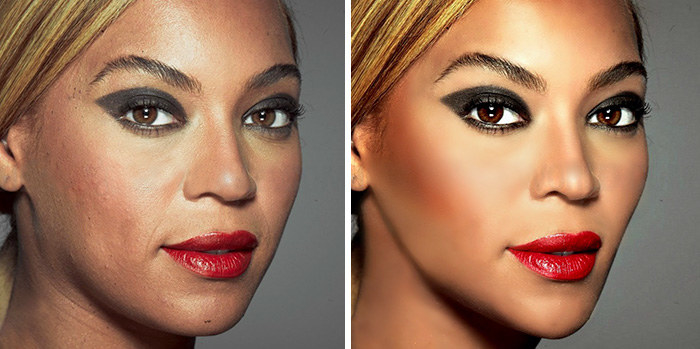“On any given day, we’re lied to from ten to two-hundred times” and “strangers lie three times in the first ten minutes of meeting each other.” While these numbers may be rather alarming, in truth, most of the lies we interact with each day are white lies. But then, if we do it the frequency that we do, why does lying have such a negative connotation to it? However, this is not the question for myself to answer, but rather, falls to the responsibility of the reader.
We, as humans, consistently beg for the truth, but when it’s given to us and we find it unpalatable, we voluntarily reject it and substitute a ‘reality’ that we agree with. In truth, people love to be lied to. Adam Savage of Mythbusters has even said, “I reject your reality and substitute my own,” when in the presence of scientific facts.
In the world of rhetoric, one specific rhetor has a theory that helps give backing to the stated claim. Michel Foucault was born October 15, 1926, in Poitiers, France. He later died in June 25, 1984, in Paris, France. While he was alive, he developed a couple theories like the theory of Docile Bodies and the Theory of Panopticon. However, the theory that bests relates to this essay is his Will to Truth.
Foucault’s Will to Truth has a very simple explanation: truth isn’t located in discourse itself. Because truth is not located in discourse, that means the opposite of truth, which is untruth, or lies, is the only thing left that can occupy discourse. But this still does not quite link to my earlier statement: humans love to be lied to.
Humans are social creatures, no one can deny it. In social interaction, discourse takes place, so in essence, lies take place as lies are the absence of truth which discourse lacks. But if humans hated to be lied to, then why continue to have discourse? For the sake of social interaction which we all love? Because we love social interactions, by extension, we love discourse, and by loving discourse, we love lies and we love to be lied to.
At this point, the reader may want to disagree with me, and tell me that they hate to be lied to. They may even wish to use the cliché “I’d rather be hated for telling the truth than loved for telling a lie.” But the answer to that is: no. No, because if one were to take out their phone, and go to their Instagram feed, they would see the multitude of pictures that their friends upload. So tell me, of what is the picture consisting? Perhaps a friend at the beach, the night sky, a selfie? Perhaps you can tell me what filter was used? Or if the content is of something positive or negative?
Looking at this picture, suppose it is a selfie. A friend is smiling and holding their phone above their head, presenting a view as though the reader is significantly taller than they are. What are the circumstances surrounding this selfie, though? Are they truly happy, and hence the smile, or does one know them to be going through a difficult time in their life and know that their smile is most definitely, one-hundred percent, fake? If it is not a real smile, a true smile, then it is a fake smile, which is, a lie because a lie is the absence of truth. But, we do not go out of our way to put those people on the spot. This is a lie that we are willing to accept, and we accept this lie because it is not large enough to bother us and also, in short, we do not care.
Moving on from picture content, now one must ask themselves, “is there any changes to the picture?” Have they retouched it in any ways? Perhaps they made themselves to be skinnier, or gave themselves some rounder or larger assets. Better still, perhaps they are still learning how to alter photographs and one can instantaneously tell that the picture in question has indeed been changed. This altering of pictures, which are true by nature as they show the image of how things are in that particular moment, changes them from truth-bearing to lie-telling. However, that does not mean that this type of lie is a harmful or detrimental thing. In many cases, poor Photoshop skills actually lead to some gut-busting laughter while really talented Photoshop artists can create works of art that look so realistic, it’ll make one believe that the things that they are viewing can not possibly be anything but real and truthful.

Returning back to the picture, now we must ask ourselves, has a filter been used? More times than not, one has. Does it change the emotion that is being conveyed through the photograph? Is it more serene, or perhaps more upbright or even downcast? These filters are designed to manipulate emotion, but because the person behind the picture is having to rely upon filters, the picture is no longer showing the full truth. By using these filters, especially for mood manipulation, or the manipulation of pathos, the person is trying to convey either an emotion that is not present or is present, but not strong enough for the lens to capture.

Even in modern day advertising, picture retouching is heavily relied upon. On the cover of almost any popular magazine (think People, Cosmopolitan, US Weekly, Men’s Health, or Entertainment Weekly) the person on the cover of the magazine has been heavily Photoshopped to fit into American ideals of beauty. Here is the problem with that though, most of the body types shown on the cover of magazines is retouched to the point of fantasy. Bodies are rarely so thin, or a perfect hourglass. The skin is rarely unflawed, free of all blemishes and stretch marks. And let us not forget the hair, we deal with fly-aways on a daily basis and the magazines are going to try to tell us that there are gods and goddesses of humanity who do not deal with the same issues? This author thinks not.
But here is where retouching takes a dark turn. More and more, impressionable minds are absorbing this sense of American beauty. This is a lie fed to thousands of people, and they believe that if they eat less, if they master makeup tutorials, if they buy into the clothing brands of the rich and the famous, then they can be just as beautiful as the people on the television, the people on the internet, the “picture perfect beauty queens.” This is a saleable lie. One that the mainstream media pushes heavily. It is a lie that is so thoroughly intertwined with our daily lives, that most of us know someone who either suffers from an eating disorder, or suffers from depression, or some other mental disorders because of a subconscious desire to “fit in” with the mainstream.
However, these are not the only cases of lies that we come across on a daily basis. In fact, most lies come from ourselves. Our brain has two different systems, unimaginatively referred to as System One and System Two. System One works solely on a platform of heuristics while it is the job of System Two to make corrections to noticeable mistakes that System One makes. Heuristics come about because we often have to make decisions quickly without full information. It is defined a general strategy for solving a problem or coming to a decision.
We typically fall for the lies given to us by our System One because our System Two is overly confident in most answers that we give ourselves. An example of this could be when we are given a stereotype of a particular type of person and then ask ourselves to rate several different majors that this person would most likely be in. We associate certain majors with specific characteristics, even though it is far more likely that this person would be in a major with a larger amount of people in it. Even if we know that a certain major has more students than another, we will disregard that and instead match characteristics. Because of our System One doing this, and our System Two failing to gather the correct information we need, this is an example of an involuntary lie that we tell ourselves.
But it does not end here. How often do we see something, evidence for a belief, that we do not want to believe is real? The woman whose man grows distant, sending more and more time at work each day until he no longer returns home. The man whose woman is constantly on her phone when she is around him and then refuses to message him when they are apart. These are but mere examples of we tell ourselves that a significant other is not cheating, even though they are signs that infidelity is taking place.
When we go into a state of denial, we are refusing to acknowledge the truth and, instead, are relying on lies that we feed to our own self for the sake of comfort. This is not a bad thing, as it is a perfectly valid, if somewhat unhealthy, way of coping with knowledge. It is one of the stages of grief when someone passes, it is what we go through when told that we or someone we love has cancer, it is a battle we wage within ourselves when we find out the loves of our lives no longer feels the same way.
However, one of the positive things about knowing how we lie to ourselves and others lie to us is that we can train ourselves to spot these lies, and to stop our tendencies for believing the lies we tell ourselves. There is a whole science to spotting lies, looking at micro-expressions and body language to determine truth-telling elements. And if that grabs the attention of one of the readers, perhaps watch Lie to Me to help with lie-spotting.
Training in this science is not the only way to train ourselves to spot and notice lies. We can also train ourselves to think more critically. Look for the information that is desired (i.e. a spouse is not cheating on us) and then separate that from the information gathered that may be pointing to the opposite. Ask yourself ‘why’ and think of reasons why they may want to deceive you.
We do not have to spend our lives getting snagged in endless webs of lies and deceit. There are quite a few ways to will ourselves to the truth but, generally speaking, we as a species claim we want the truth, only to then reject it. We enjoy being lied to, because otherwise we would change and become truth-seekers.
Bibliography
TEDTalks: How to Spot a Liar. Perf. Pamela Meyer. How to Spot a Liar. TEDTalks, July 2011. Web. 21 Apr. 2017.
Faubion, James. "Michel Foucault." Encyclopædia Britannica. Encyclopædia Britannica, inc., 10 May 2007. Web. 21 Apr. 2017.
Bizzell, Patricia and Herzberg, Bruce.”Michel Foucault.” The Rhetorical Tradition: Readings from Classical Times to the Present. Edition 1
Sinnott-Armstrong, Walter and Fogelin, Robert. Heuristics. Pg 241-243. Understanding Arguments: An Introduction to Informal Logic. Edition 9.

